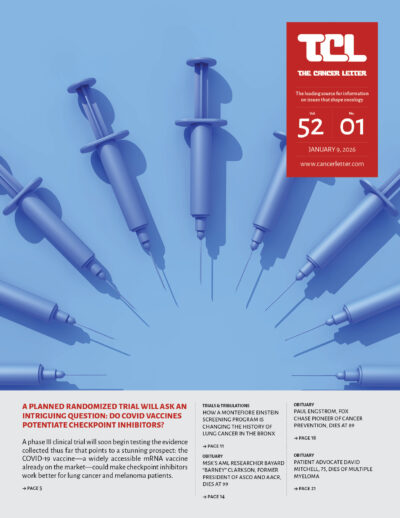

Cover Story
ClinicalTrials & Tribulations
By Wenora Johnson, Danielle Ripley-Burgess, Heather Hampel, Folasade (Fola) P. May, Anjee Davis and Richard M. Goldberg
Technological advances are transforming our understanding of cancer, accelerating the evolution of new treatment approaches. In the past decades, researchers deploying new techniques for analyzing DNA have extended our knowledge of inherited genetic abnormalities that can predispose a person to develop colorectal and other cancers.
In Brief


Funding Opportunities
Clinical Roundup


Trending Stories
- CBER Director Vinay Prasad sidelined staff to jettison Moderna’s mRNA flu shot
- Lou Weisbach tells us about his plan to raise $750 billion for the American Center for Cures
- The FY26 funding package gave NCI a raise, but the institute’s buying power is 18% less than it was two decades ago
Lowy: “We still have percentiles, but we’re not allowed to make awards exclusively on the basis of payline.” - Mail-out colorectal cancer screening programs extend, rather than replace, clinical care
- Richard Pazdur left FDA to avoid being part of “the destruction of the American medical system”
- Team USA’s Julie Letai competes in Milan Olympics speed skating event





















